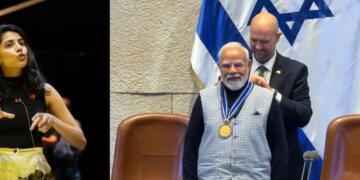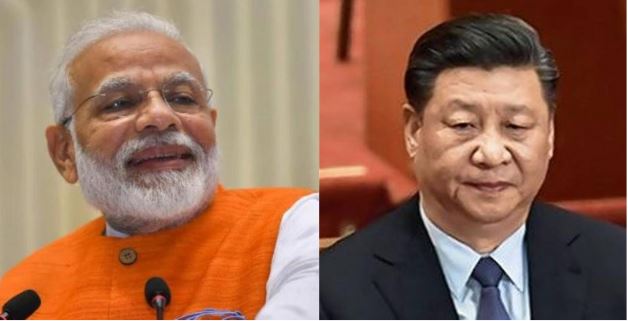The development of an indigenous vaccine has seen India step up its vaccine diplomacy especially in the neighbourhood with the demand of Indian vaccines rising far more than that of Chinese vaccines. As China attempts to force through its vaccines – the quality and efficacy of which is highly disputed, India has taken the lead in emerging as a true regional power by helping out smaller countries in their fight against the Wuhan coronavirus pandemic as it ensures that they are not deprived of Indian vaccines.
As the country ring in 2021 with the news of two Indian vaccines– Covishield and Covaxin being approved for restricted emergency use against the Wuhan virus, India is fast emerging as the saviour of the world by not only developing vaccines indigenously but also manufacturing the vaccines for the world.
India is already formulating a strategy for vaccine export after its domestic demand is met with the country adopting a “Neighbourhood First” policy as Indian vaccines are in high demand. Foreign Secretary Harsh Vardhan Shringla had earlier announced that the “First priority will be for our closest neighbours, our friends” as he assured Nepal, Bangladesh, and Myanmar of coverage under India’s vaccine umbrella.
The Print reports that India will adopt the ‘HCQ model’, and will be sending Covid vaccines to neighbours after local demand is met. In vaccine distribution, priority will be accorded to Bangladesh, Bhutan, Nepal, Sri Lanka and Afghanistan — as PM Modi had promised the aforementioned countries that India will indeed supply them vaccines.
The Print also quoted a top official as saying, “India will not be in a rush. Just as we did in the case of HCQ, we will start distributing it as soon as we are done locally.” Prime Minister Modi had earlier pledged to make vaccines for all humanity.
Recently, after India granted emergency approval to Covaxin and Covishield, Nepal’s Envoy to India, Nilamber Acharya congratulated “India and its scientists” for their “achievements leading to the production of affordable vaccines suitable” to their country.
He further added, “We have received India’s assurances and expect the early availability of vaccines produced in India to meet the needs of Nepal.”
Earlier this week, Bangladesh claimed that it expects to receive the vaccines from India by month-end as Bangladesh Foreign Minister A.K. Abdul Momen while stressing that no export ban will apply to Dhaka, said, “As the deal was done on the basis of discussion at the highest level — between Bangladesh Prime Minister Sheikh Hasina and Indian premier Narendra Modi — no ban will be applicable for us.”
It is pertinent to note that in November last year, Bangladesh’s Beximco pharmaceuticals had signed an MoU with the Serum Institute of India to procure 30 million doses of Covishield — with the approval of import being granted by Bangladesh’s Directorate General of Drug Administration (DGDA) earlier this week.
In Myanmar, State Counsellor Daw Aung San Suu Kyi in her New Year address had stated that the country had started the process to get vaccines from India. “The purchase contract for buying the first batch of the vaccines from India has already been signed. As soon as the authorities concerned in India have issued permission to use this vaccine, we have made arrangements for the import of these vaccines into Myanmar,” said Suu Kyi.
Lotay Tshering, the Prime Minister of Bhutan, said, “The lead India is taking in developing vaccines is a source of hope for all of us.” While, Bhutan’s Ambassador to India after taking a tour of Hyderabad-based Bharat Biotech and Biological E, remarked, “India’s COVID-19 vaccines will benefit all countries.”
At the dawn of 2021, India sent the Maldives 2400 vials of BCG vaccine as a “gift” to help the island nation overcome the shortfall in the country’s National Immunisation Programme. India’s sustained efforts to help the Maldives fight the pandemic was widely appreciated – India sent a medical team and gifted 5.5 tonnes of essential medicines while under operation Sanjeevani, the Indian Air Force airlifted 6.3 tonnes of essential medicines and consumables from various cities in India in April. It is expected that the latter will receive Indian vaccines after India can fulfil its domestic demand.
Whereas China – the architect of the deadly pandemic, is desperately trying to force “friendly” countries and its citizens to take Chinese vaccines which lack quality, rigorous testing and efficacy, in a desperate bid to emerge as the nation who ended the pandemic and thereby restore its goodwill in the world to the pre-pandemic era.
In fact, the Chinese vaccine approved for local use had only one only 79.3 per cent efficacy with even the World Health Organisation who worked for hand in glove with Chinese President Xi Jinping to unleash the pandemic on the world, has approved only five Chinese vaccines for export compared to 47 vaccines from India.
Read More: “They gave the virus, we gave the vaccine”, India’s soft power will grow at the cost of China
In what has become a norm in global diplomacy, anything that China gives comes with a steep price with Southeast Asian countries increasingly getting infuriated with the political conditions attached to the export of Chinese vaccines. Additionally, China’s decision to inoculate more than 1 million of its own citizens with Sinopharm doses without even completing full trials is a testament to how China cares little about the welfare of its own people, let alone the citizens of other countries.
It is clear as hay that India’s neighbourhood increasingly prefers Indian vaccines over the questionable Chinese vaccines thereby dealing a huge blow to China’s vaccine diplomacy.

























